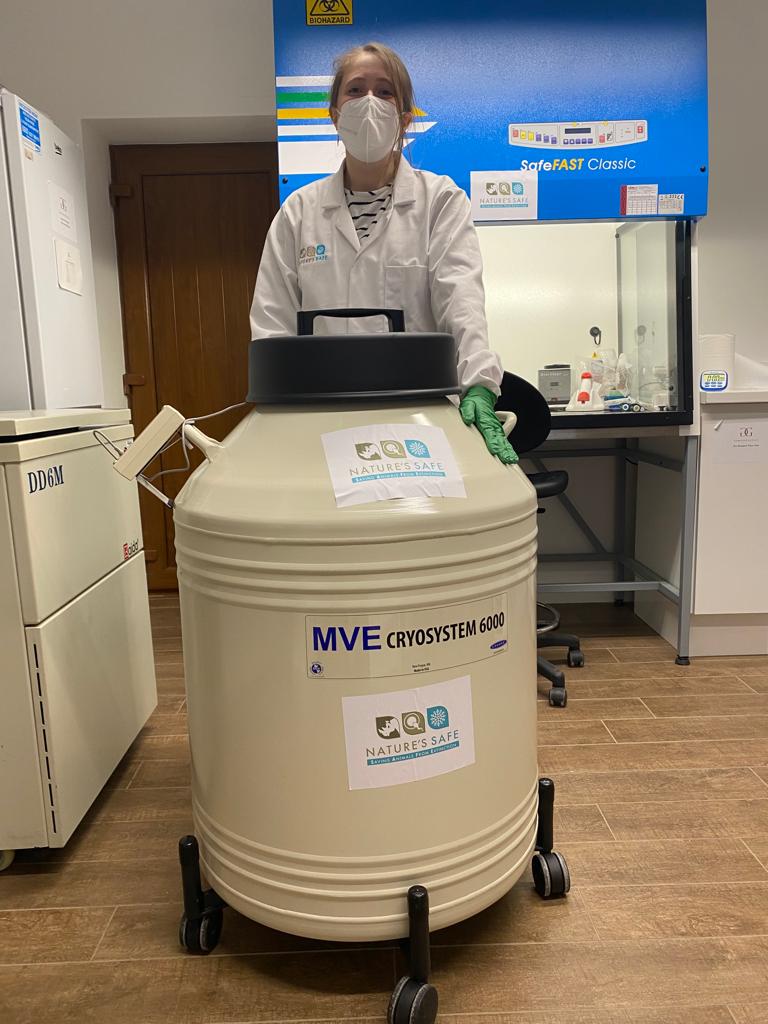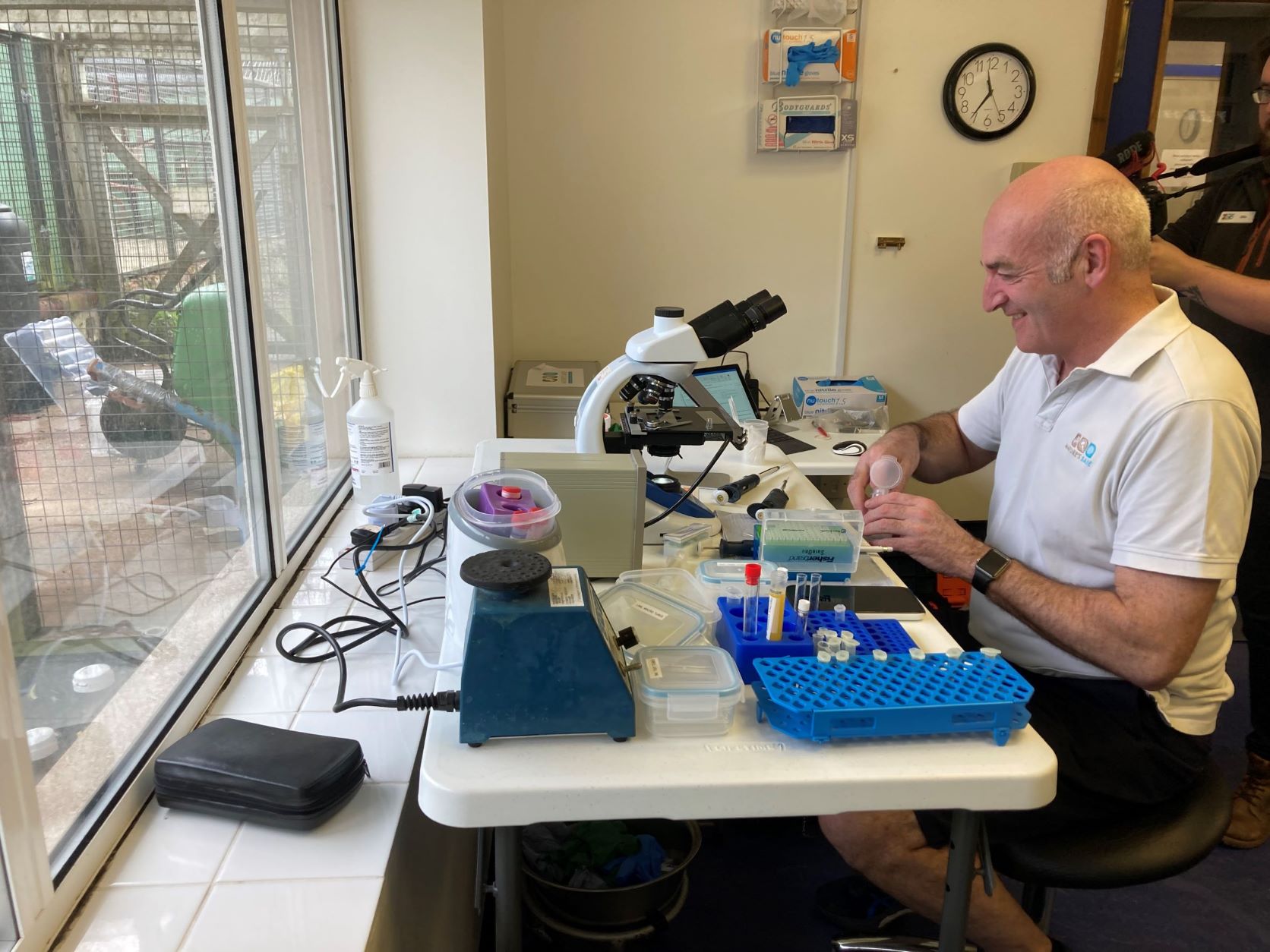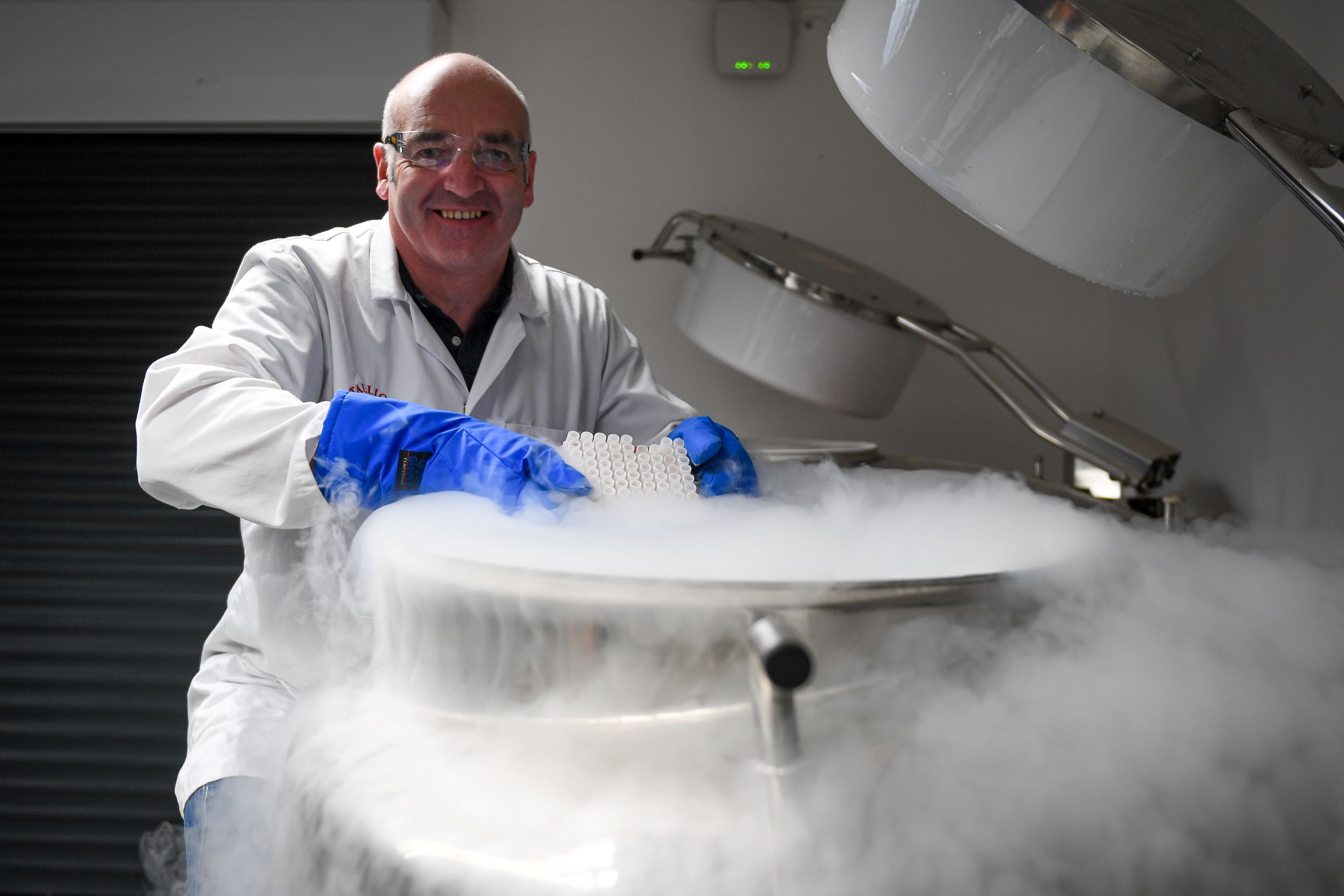100 endangered animal species now safely stored in UK's living biobank
“With gene pools shrinking, cryopreservation is a critical piece of the conservation puzzle, providing a safeguard for animals the world is losing."
Nature’s SAFE celebrates banking 100th species in the Big Freeze
100 endangered animal species now safely stored in UK’s ling biobank
Nature’s SAFE, one of Europe’s largest living biobanks for preserving endangered animal species, and home to some of the planet’s most precious natural resources, is celebrating banking it’s 100th species. In a race against time, The Living Biobank began its work in late 2020, and acts as an insurance policy to preserve rare, and threatened animals, so they can be protected for generations to come.
Currently, 100 species are lost each day to extinction, and as the last few species die, their genetic blueprint is removed forever from our planet. Nature’s SAFE partners with accredited zoos to collect and process tissue and reproductive cell samples from threatened and endangered species, storing them in an indefinitely cryopreserved living state at -196oC. Once thawed, these stored living cells could one day be used in cell culture or assisted reproductive technologies to maintain genetic diversity in the species gene pool.
“With gene pools shrinking, cryopreservation is a critical piece of the conservation puzzle, providing a safeguard for animals the world is currently on track to lose.” said Dr Sue Walker Head of Science at Chester Zoo and Co-Founder of Nature’s SAFE.
As a centre of excellence in reproductive science, Nature’s SAFE has to date cryo-preserved multiple cell types from many endangered animal species, including the critically endangered mountain chicken frog, Javan green magpie, pied tamarin, and jaguar. The 100th species to join The Living Biobank, is the Owston’s civet; a beguiling animal on the brink of extinction in the wild across South East Asia.
Dr Veronica Cowl, Reproductive Biology Coordinator for Chester Zoo and the European Association for Zoos and Aquaria (EAZA) said “We’ve been working on understanding reproduction in the elusive Owston’s civet for more than three years, and it’s fantastic that we can now preserve the genes from the current zoo population in Nature’s SAFE, The Living Biobank. It’s a great step forward in our work to prevent the extinction of this beautiful species, and it’s a pleasure to work with such a passionate group of people”.
Nature’s SAFE has an ever-expanding, global network of expertise to enable cutting-edge reproductive and biobanking science to be delivered to zoological collections for free and invites queries from potential new biobank partners or supporters.
Tullis Matson, Chair and Founder said “Without Nature’s SAFE, for many species already so near the brink of extinction, there will be no return. With Nature’s SAFE and other biobanking partners – there is optimism. We know the 6th mass extinction on Earth is underway, and there will be rough times ahead. The question is what do we want to do about it? And our answer is: we want to secure future options for biodiversity, by acting now.”
To find out more about conservation charity Nature’s SAFE’s science and conservation work, head to www.natures-safe.com
-ENDS-
Editors’ Notes
Media Contact
Tullis Matson, Founder and Chair of Nature’s SAFE. Tel: 01948 666295 / 07801 592111 email: office@natures-safe.com Nature’s SAFE is a registered charity No 1192876.
Nature’s SAFE
Nature’s SAFE is a Living Biobank on a mission to save animals from extinction by collecting, indefinitely storing, and regenerating reproductive cells and cell lines from endangered animal species. Our science-led charity is setting the bar in cryoconservation technologies, uniting biotech with conservation management stakeholders to halt and reverse biodiversity loss. Our work is entirely funded by donations. Please visit www.natures-safe.com to find out more or get in touch via office@natures-safe.com.
Tag @NaturesSAFE1 on Twitter https://twitter.com/NaturesSAFE1
Tag @naturessafe on Facebook https://www.natures-safe.com/
Tag @natures_safe on Instagram https://www.instagram.com/natures_safe/?hl=en-gb
Tag @Nature’s SAFE on LinkedIn https://www.linkedin.com/company/nature-s-safe-saving-animals-from-extinction/
Chester Zoo
- Chester Zoo (www.chesterzoo.org) is a world-leading conservation and education charity that’s committed to preventing extinction and dedicated to raising awareness of key conservation and environmental challenges
- The zoo works with more than 3,000 species globally, including 140 international animal conservation breeding programmes, which are working to ensure genetically viable safety-net populations of species in zoos. It’s also home to five national plant collections, comprising of more than 1,000 species
- Experts from the zoo are recognised by governments and NGOs across the world as leaders within the global conservation community. Currently, the zoo is saving species on behalf of the Bermudan, Spanish and Portuguese governments, among others
- The zoo works with over 100 partners in more than 20 countries to recover threatened wildlife and restore habitats, including orangutans in Bornean rainforests, elephants and tigers in Indian grasslands, lemurs and frogs in Malagasy forests, rare fish in Mexican lakes and various species here in the UK
- It’s millions of annual visitors and huge online communities are part of the educational, scientific and conservation jigsaw, empowering them to be part of solutions for wildlife
- The zoo influences policy both in the UK and internationally, forcing governments worldwide to take action to halt the biodiversity crisis
- Chester Zoo is playing a vital role in inspiring and educating people about the natural world and the impact humans have on it – creating and nurturing the conservationist in us all.
Photos- higher resolution available on email request allyson@natures-safe.com
- The endangered Owston’s civet (Chrotogale owstoni) living on the edge of extinction, copyright Shaldon Wildlife Trust.
- Samples are indefinitely stored in giant liquid nitrogen tanks at -196 degrees Celsius - copyright Nature’s SAFE.
- Civet sperm samples being examined by Tullis Matson prior to cryoconservation – (vials wider shot) - copyright Paignton Zoo part of Wild Planet Trust
- Samples being immersed in liquid nitrogen for long-term storage by Tullis Matson– Copyright Nature’s SAFE.
Press release distributed by Pressat on behalf of Nature's SAFE, on Friday 20 May, 2022. For more information subscribe and follow https://pressat.co.uk/
Nature's SAFE Nature Endangered Species Biodiversity Cryoconservation Cryopreservation Conservation Science Zoos Biotechnology Wildlife Charities & non-profits Environment & Nature Farming & Animals
Published By

07407194282
allyson@natures-safe.com
https://www.natures-safe.com/
Tullis Matson
Founder and Chair of Nature's SAFE , Main contact for press enquiries
email: tullis@natures-safe.com Tel: +44 (0)7801 592111
Visit Newsroom
You just read:
100 endangered animal species now safely stored in UK's living biobank
News from this source:





